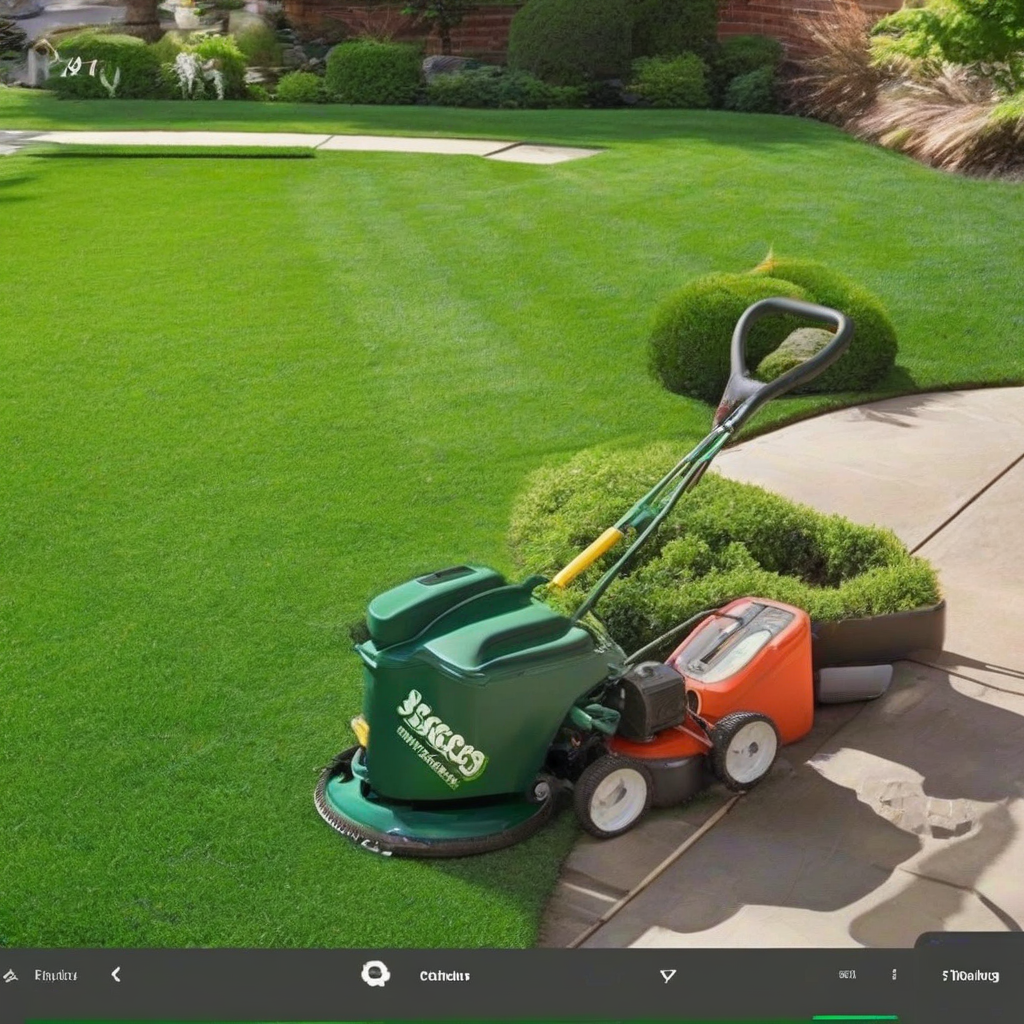Revolutionizing Your Lawn: A Comprehensive Guide to Professional Lawn Care Services

Revolutionizing Your Lawn: A Comprehensive Guide to Professional Lawn Care Services
Maintaining a lush, healthy lawn can seem like a daunting task. Between mowing, fertilizing, weeding, and pest control, the demands on your time and energy can be significant. This is where professional lawn care services step in, offering expertise and efficiency to transform your outdoor space.
Understanding the Benefits of Professional Lawn Care
- Time Savings: Reclaim your weekends and evenings. Professional services handle the labor-intensive tasks, freeing up your valuable time.
- Expertise and Knowledge: Lawn care professionals possess in-depth knowledge of soil types, fertilization techniques, pest identification, and disease management. They can diagnose problems and implement solutions you might miss.
- Improved Lawn Health: With their expertise, your lawn receives targeted care, leading to a thicker, greener, and more resilient turf. This translates to a more beautiful and healthier landscape.
- Cost-Effectiveness: While there's an initial investment, professional services can be cost-effective in the long run. Preventing problems through proactive care often saves more than reactive fixes.
- Access to Specialized Equipment: Professionals possess specialized equipment that’s often impractical or expensive for homeowners to purchase or maintain, leading to superior results.
- Enhanced Curb Appeal: A well-maintained lawn instantly enhances the aesthetic value of your property, boosting curb appeal and potentially increasing its value.
- Environmental Responsibility: Reputable companies use environmentally friendly products and practices, minimizing the impact on your surroundings and promoting sustainable lawn care.
Choosing the Right Lawn Care Service
Selecting the right provider is crucial for achieving optimal results. Consider these factors:
- Experience and Reputation: Research companies, read reviews, and check their years of experience in the industry. A strong reputation suggests reliability and quality service.
- Services Offered: Different companies offer varying services. Identify your lawn's specific needs (e.g., fertilization, weed control, pest control, aeration, overseeding) and choose a provider that caters to them.
- Pricing and Contracts: Compare quotes from multiple companies. Understand the pricing structure (per visit, per square foot, annual contracts) and contract terms before committing.
- Products and Practices: Inquire about the products used. Opt for companies that prioritize environmentally friendly and sustainable practices.
- Customer Service: Good communication and responsiveness are essential. Choose a company with excellent customer service and readily available contact information.
- Licensing and Insurance: Ensure the company is properly licensed and insured to protect yourself from potential liabilities.
- Guarantee or Warranty: Ask about any guarantees or warranties offered on their services. This demonstrates confidence in their work and protects your investment.
Common Lawn Care Services
Professional lawn care services encompass a wide range of treatments to address various lawn needs. Here's a closer look:
1. Lawn Mowing and Trimming
- Frequency: The ideal mowing frequency depends on your grass type and growth rate. Professionals will adjust accordingly.
- Height of Cut: Maintaining the appropriate cutting height promotes healthy growth and prevents stress on the turf.
- Mulching: Mulching mowers chop grass clippings into fine pieces that return nutrients to the soil, reducing the need for fertilization.
- Edging and Trimming: Clean edges and neatly trimmed borders create a polished and professional look.
2. Fertilization
- Soil Testing: Soil testing determines the nutrient levels in your soil, guiding the selection of the appropriate fertilizer blend.
- Types of Fertilizer: Different fertilizers contain varying ratios of nitrogen, phosphorus, and potassium (NPK), each essential for healthy lawn growth.
- Application Methods: Professionals use techniques like granular spreading or liquid spraying for even distribution.
- Timing: Fertilization should be timed strategically throughout the growing season for optimal results.
3. Weed Control
- Pre-Emergent Herbicides: These prevent weed seeds from germinating. Application timing is crucial for effectiveness.
- Post-Emergent Herbicides: These target existing weeds. Proper identification of weed types is important for selecting the right herbicide.
- Integrated Weed Management: This holistic approach combines preventative measures with targeted treatments for long-term weed control.
4. Pest and Disease Control
- Pest Identification: Accurate identification of pests (e.g., grubs, chinch bugs) is key to selecting effective control measures.
- Disease Diagnosis: Identifying lawn diseases (e.g., fungal diseases) allows for targeted treatment with appropriate fungicides.
- Integrated Pest Management (IPM): This approach emphasizes preventative measures and targeted treatments to minimize pesticide use.
5. Aeration
- Core Aeration: This process removes small plugs of soil, improving air, water, and nutrient penetration into the soil.
- Benefits: Aeration relieves soil compaction, reducing stress on grass roots and promoting healthy growth.
- Frequency: Aeration is typically recommended annually, especially on compacted soils.
6. Overseeding
- Purpose: Overseeding involves planting new grass seed to thicken the lawn, fill in bare patches, and improve its overall density.
- Timing: The best time for overseeding depends on your climate and grass type.
- Seed Selection: Choosing the right grass seed variety is crucial for success. Professionals can guide you on selecting the appropriate type.
7. Lawn Renovation
- Comprehensive Approach: Lawn renovation addresses significant issues, often involving soil improvement, aeration, overseeding, and weed control.
- Transformative Results: It can dramatically improve the health and appearance of a severely damaged lawn.
Maintaining Your Lawn Between Professional Services
While professional services provide significant benefits, maintaining your lawn between visits plays a vital role in its overall health. Here are some tips:
- Regular Watering: Water deeply and less frequently to encourage deep root growth.
- Proper Mowing Practices: Avoid scalping the grass and keep blades sharp.
- Weed Removal: Hand-pull weeds promptly to prevent them from spreading.
- Leaf Removal: Remove excessive leaves in the fall to prevent smothering the grass.
- Pest Monitoring: Regularly inspect your lawn for pests and diseases and report any issues to your lawn care provider.
Investing in a Professional Lawn Care Service: A Wise Decision
Professional lawn care services offer a multitude of benefits, from saving you time and effort to significantly enhancing the health and beauty of your lawn. By carefully considering your needs, researching providers, and following these guidelines, you can confidently invest in a service that will transform your outdoor space into a lush and vibrant oasis. The investment in a professional service is not just about aesthetics; it's about long-term lawn health, increased property value, and the peace of mind that comes with knowing your lawn is in expert hands.
What's Your Reaction?

















